Taking too long? Close loading screen.
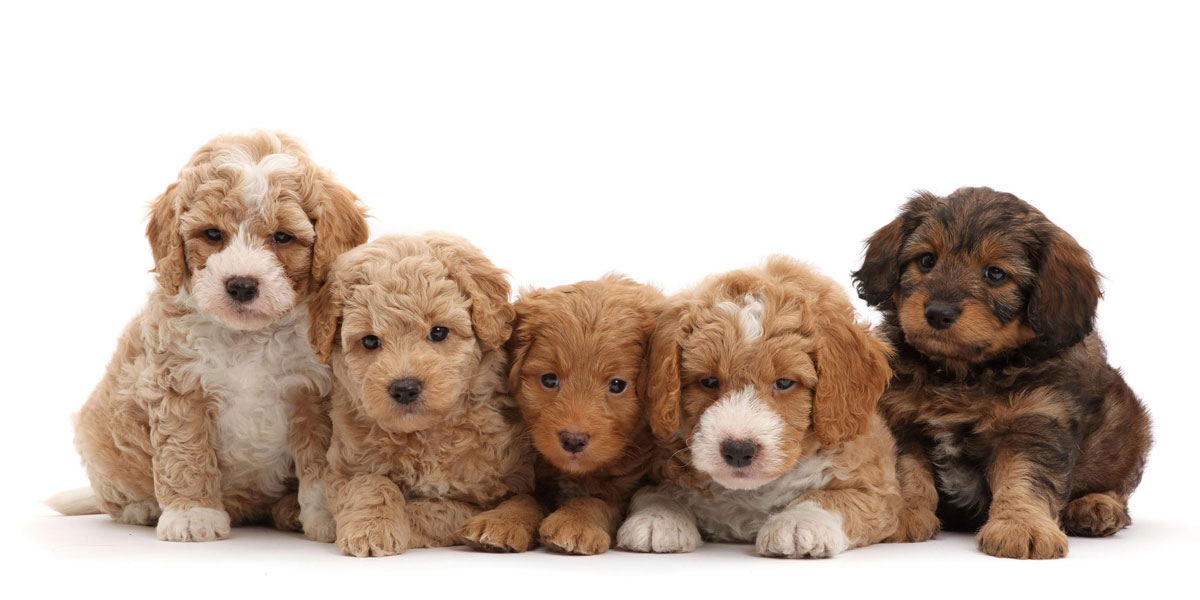
March 6th
Love dogs, but hate having allergies or cleaning up mountains of fur? Well, you’re in luck.
There are dozens of breeds out there that’ll suit you perfectly!
Let’s get this out of the way first…
All dogs shed.
When people talk about “non-shedding” dogs, what they really mean are “minimally shedding” dogs.
Minimally shedding dogs are far less likely to trigger your allergies or leave piles of hair behind than, say, a Husky or a Golden Retriever.
Do they shed? Yes, a little. But for the breeds on this list, you’ll barely notice.
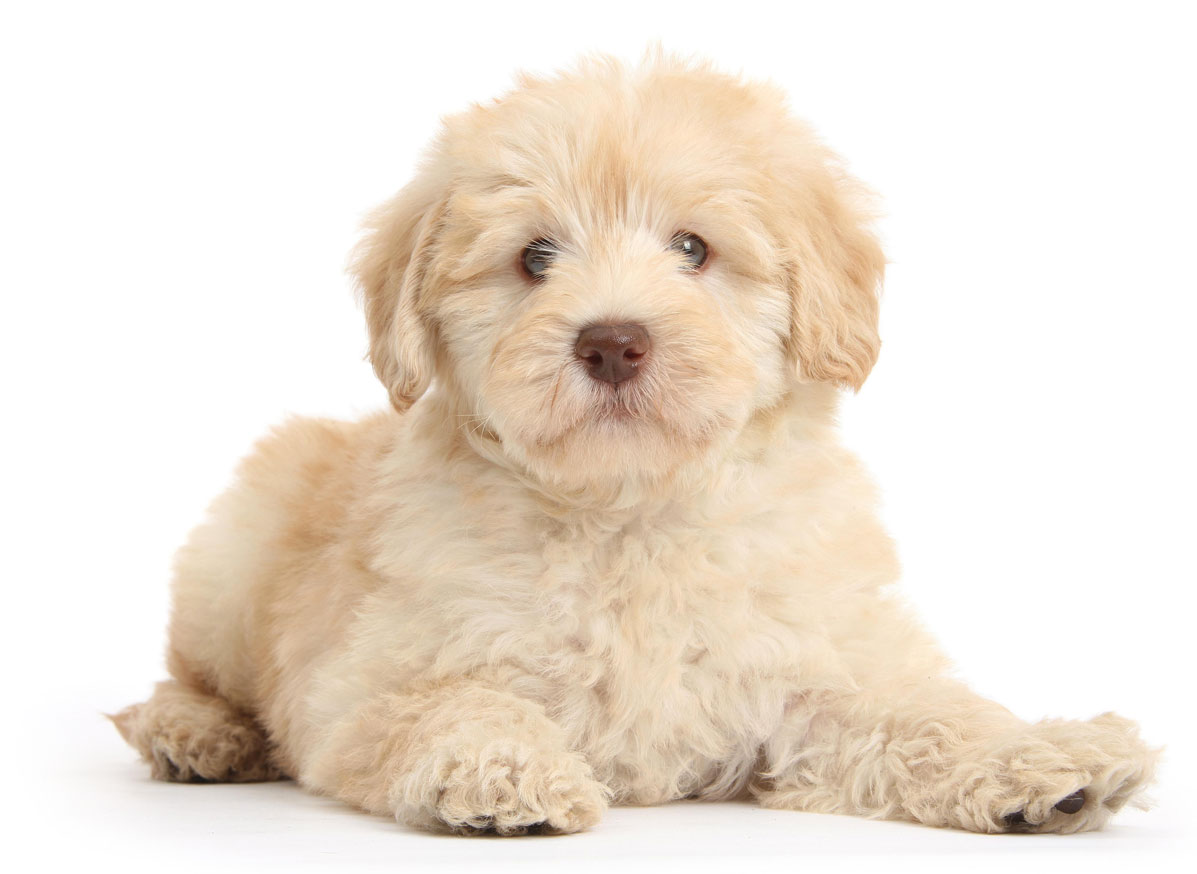
The amazing Goldendoodle is the poster child of hybrid breeds, hypoallergenic dogs, and family-friendly pups the world over. Combining the friendly, eager-to-please Golden Retriever with the bright, non-shedding Poodle is a match made in heaven.
People love Goldendoodles, and some even claim they’re the “perfect” dog!
Labradoodles are very similar to Goldendoodles, and it’s easy to see why. In terms of looks and personality, Labradoodles and Goldendoodles are neck and neck. Both hybrid breeds are popular, so which do you pick? Well, why not both?
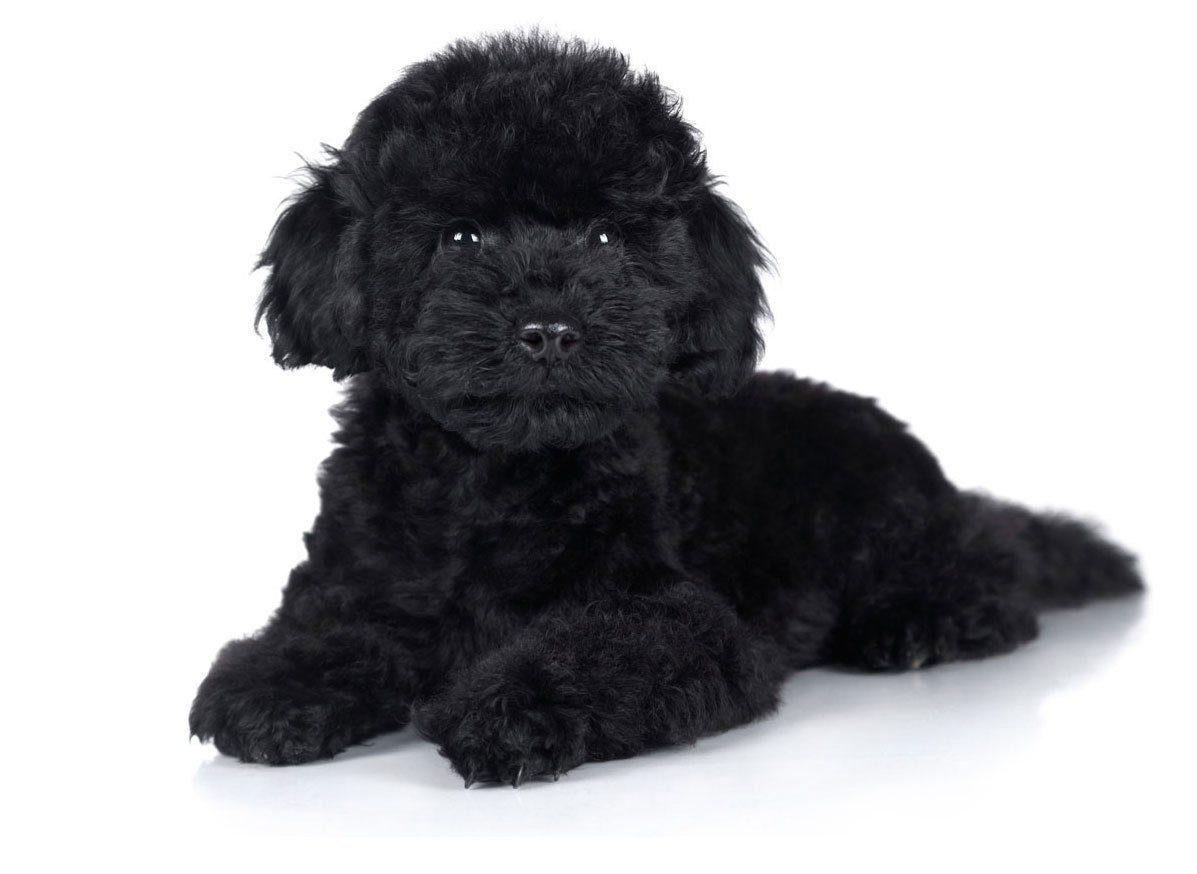
As one of the most intelligent and allergy-friendly dog breeds around, Poodles have a lot going for them. But look past the extravagant haircuts and proud demeanor, and you’ll find a goofy, fun dog who loves to entertain (and learn new tricks).
Poodles come in several sizes, ranging from teacup teddy bears to full-size standard Poodles.
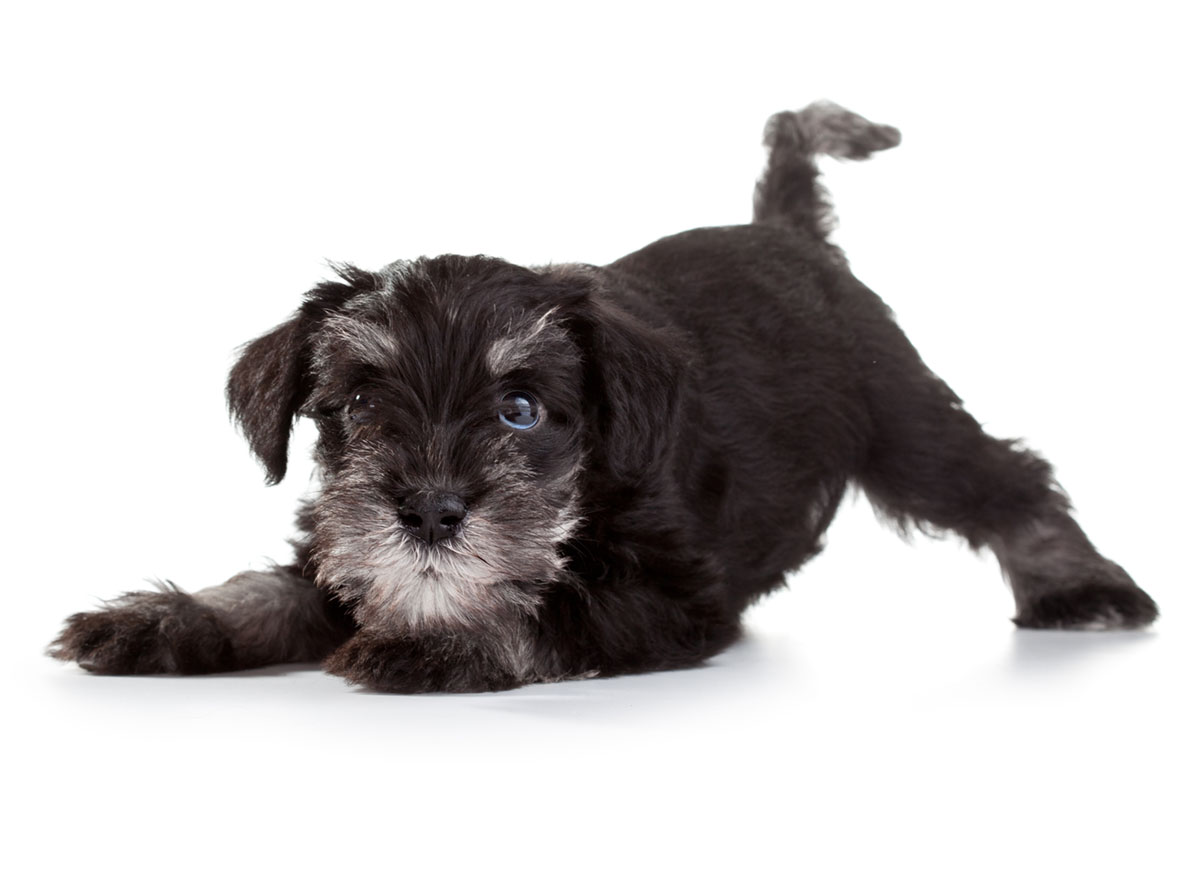
Like Poodles, Schnauzers are minimally shedding. Also like Poodles, they come in multiple sizes — miniature, standard, and giant.
Schnauzers are bright, hardworking dogs who love to have a job to do. Although they were bred to catch rodents, they’re also quite adept at capturing hearts.
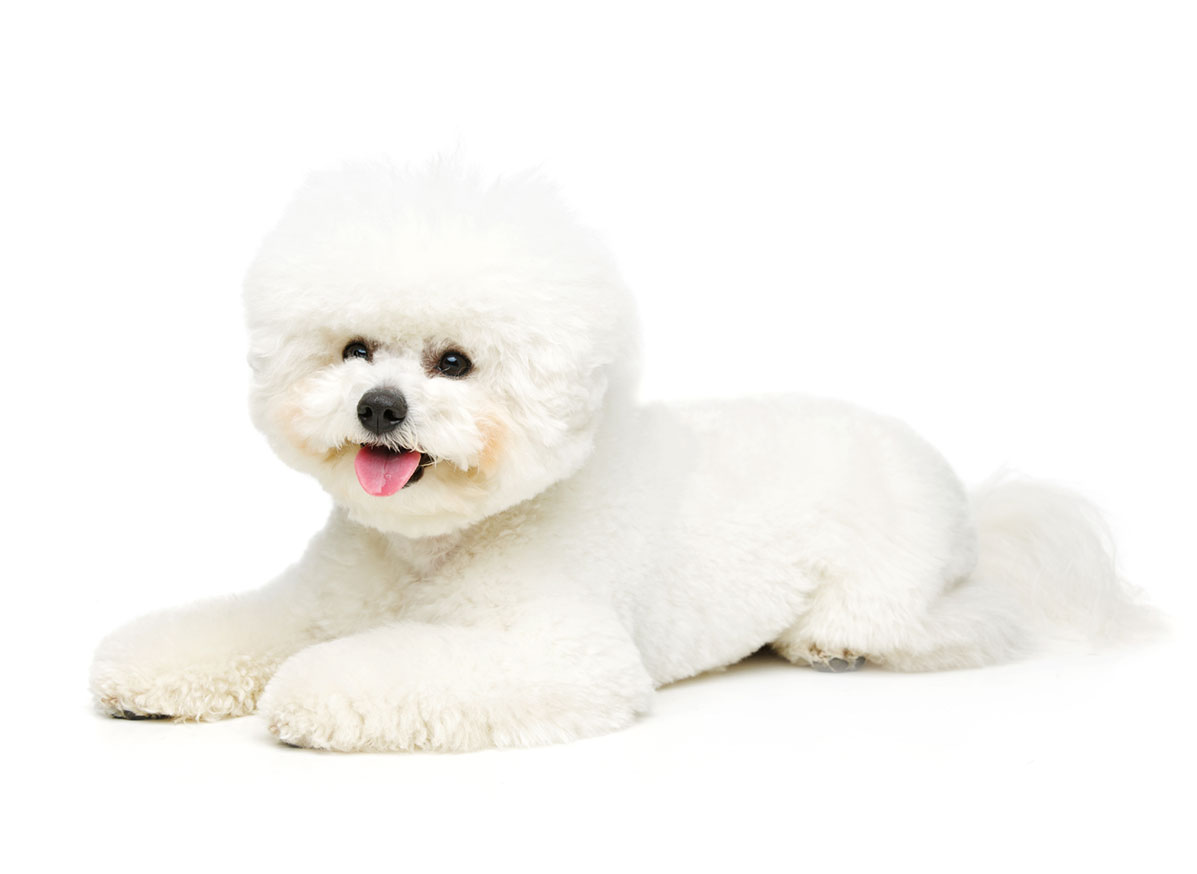
Tiny dogs with charming personalities, the Bichon Frise has been amusing humankind for centuries. Our ancestors had great taste — the Bichon Frise also happens to be minimally shedding.
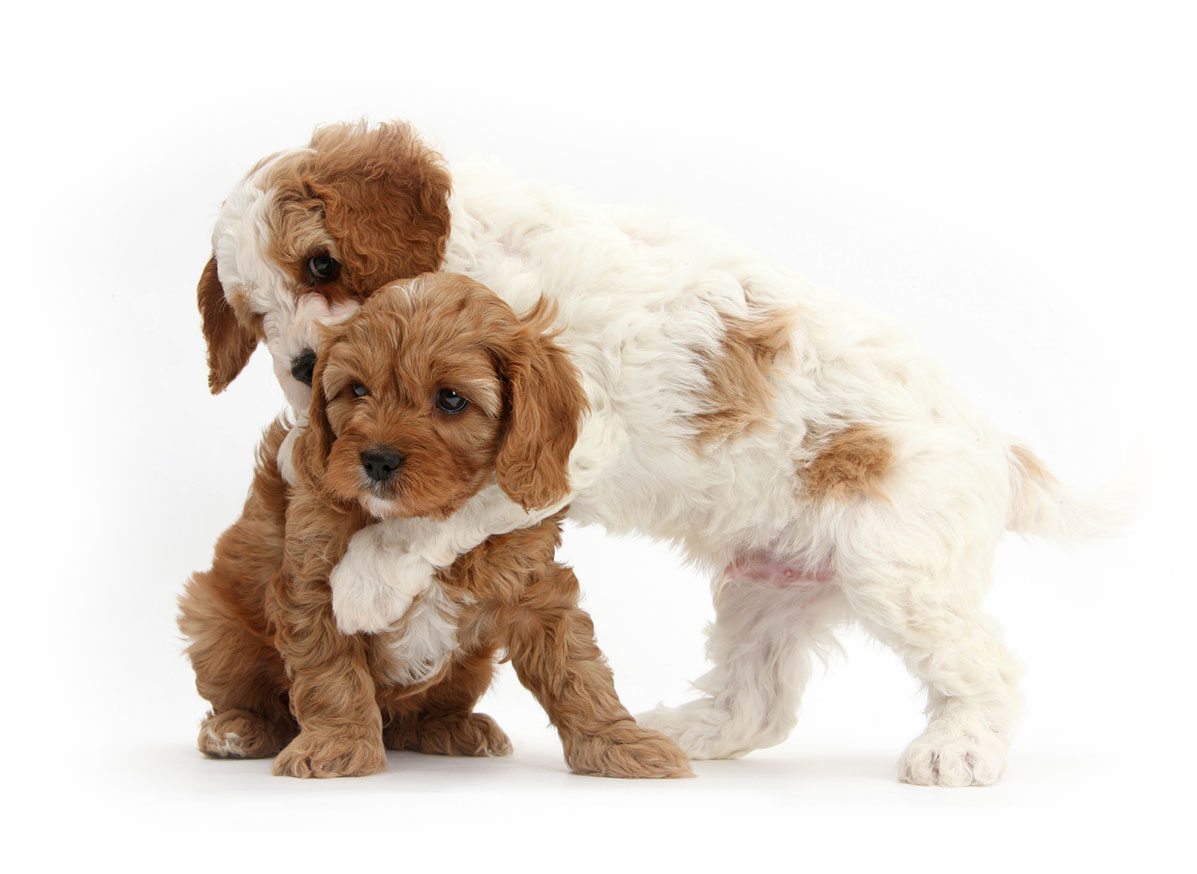
Cavalier King Charles Spaniels are great dogs. But their name is just too long — which is why Cavapoos were created.
Just kidding. Cavapoos were actually bred to capture all of that adorable Cavalier spirit in a non-shedding dog body, and breeders were very successful!
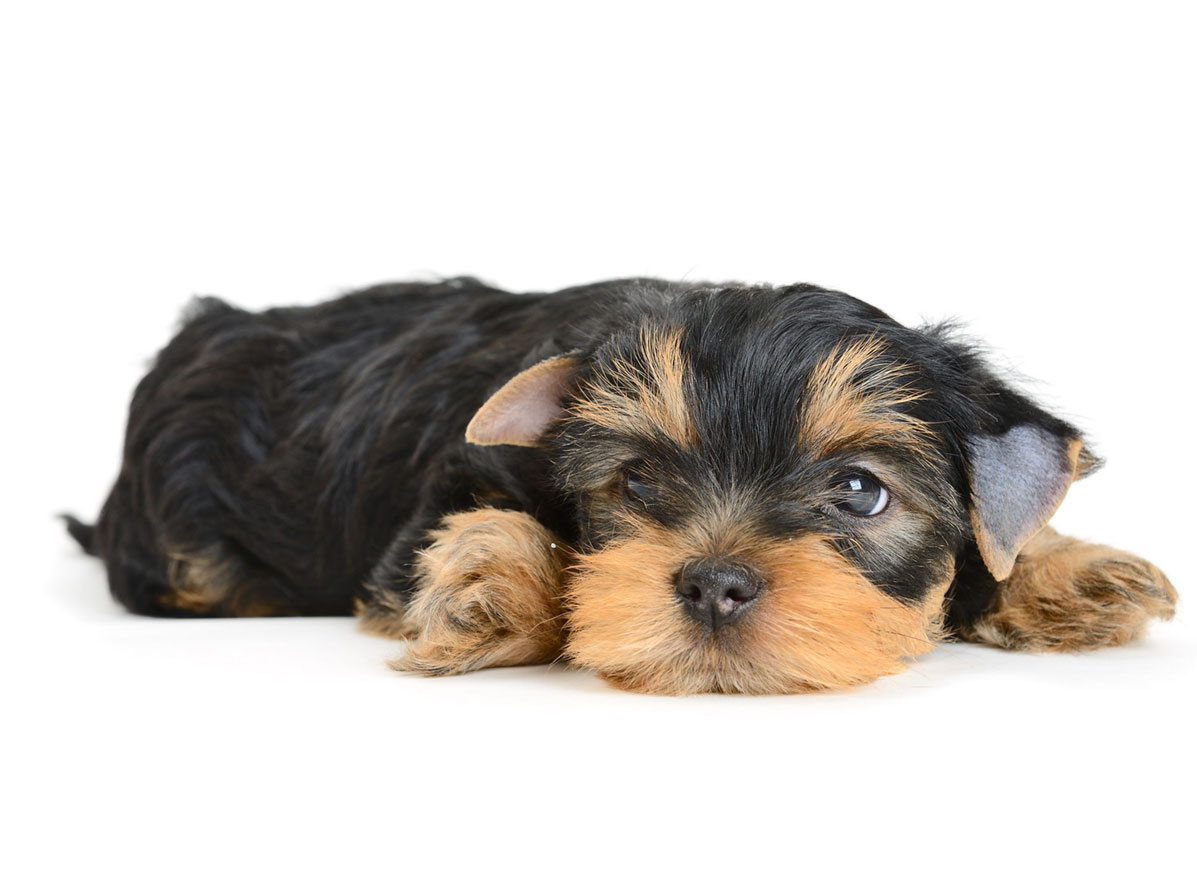
Yorkshire Terrier puppies for sale
What’s not to love about a Yorkie? There aren’t many purebred, non-shedding dogs out there, but they Yorkshire Terrier is one of them! Yorkies are adorable family companions, and make great apartment dogs.
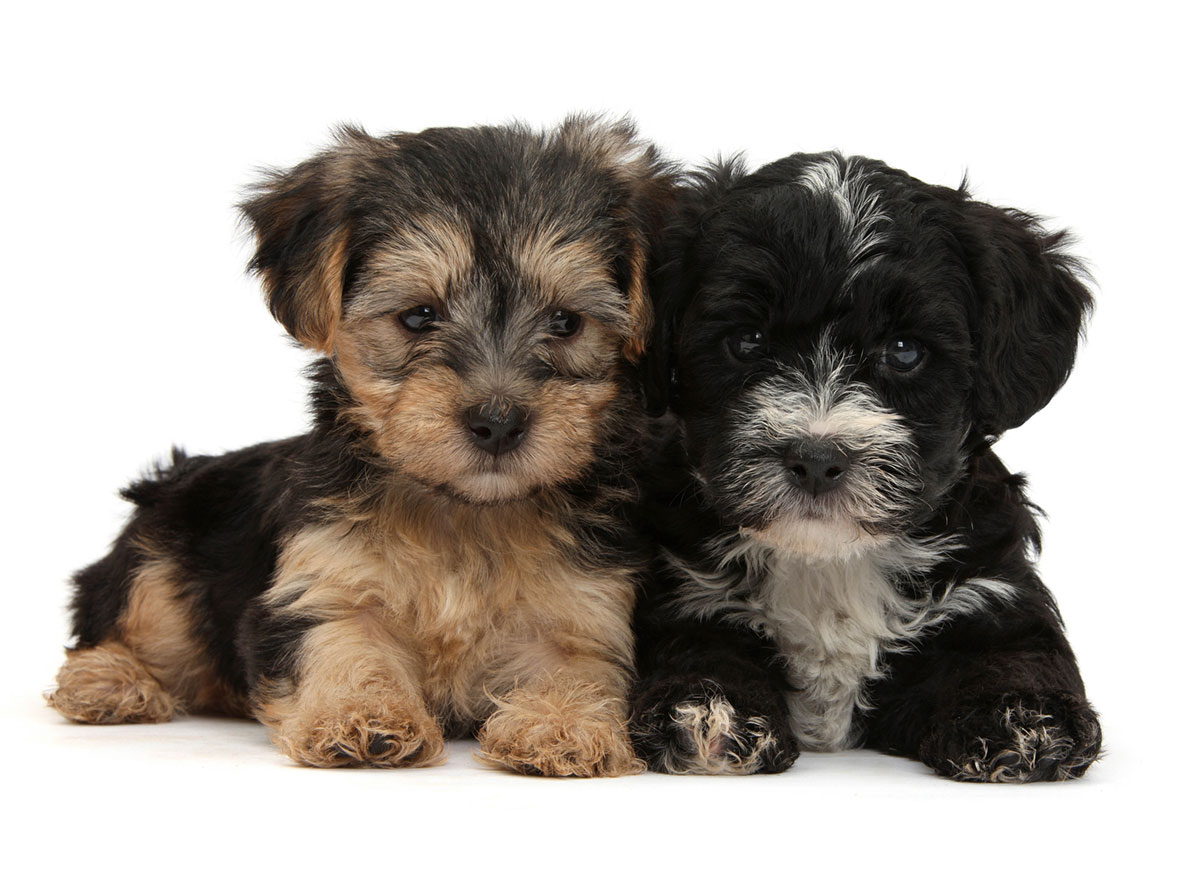
If you thought Yorkshire Terriers couldn’t get any better, think again. This hybrid cross of the Yorkie and Poodle is going to make your heart melt. And just in case you were wondering, yes, they’re non-shedding just like their parents.
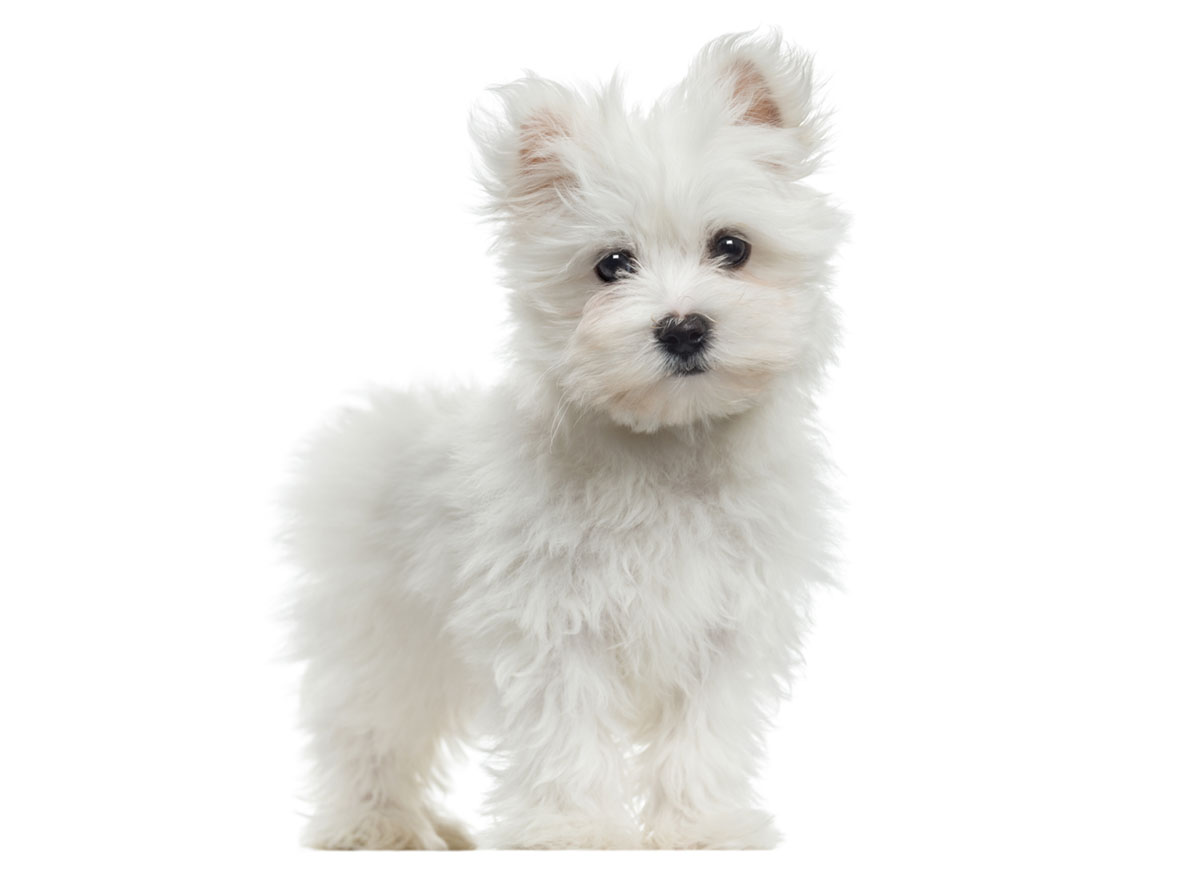
Covered in its long, silky coat, the Maltese looks more like a stuffed animal than a real dog. The Maltese boasts a melt-your-heart personality, and just might be one of the cutest breeds on the planet.
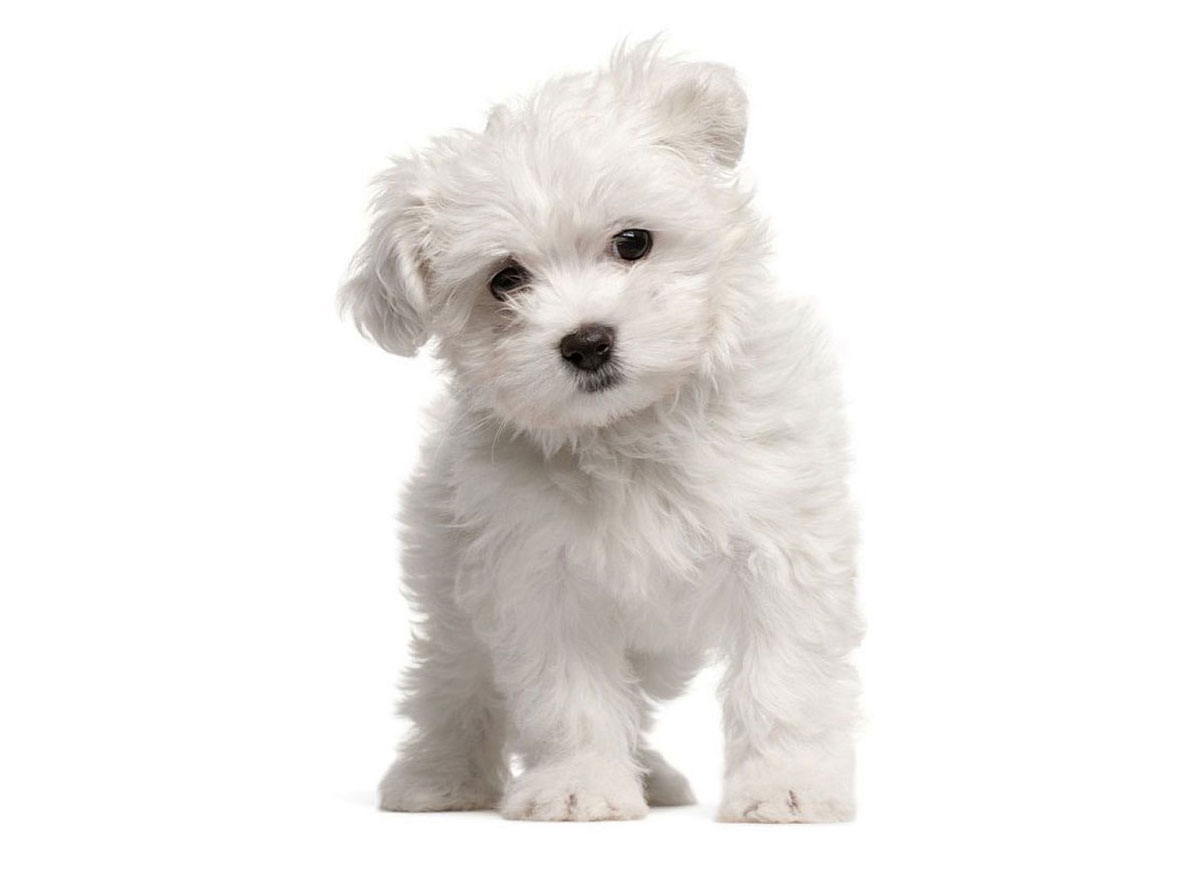
The Maltese is already non-shedding, so why cross them with Poodles? Well, because we can. And also because Maltipoos are even more adorable, combining the best of both worlds!
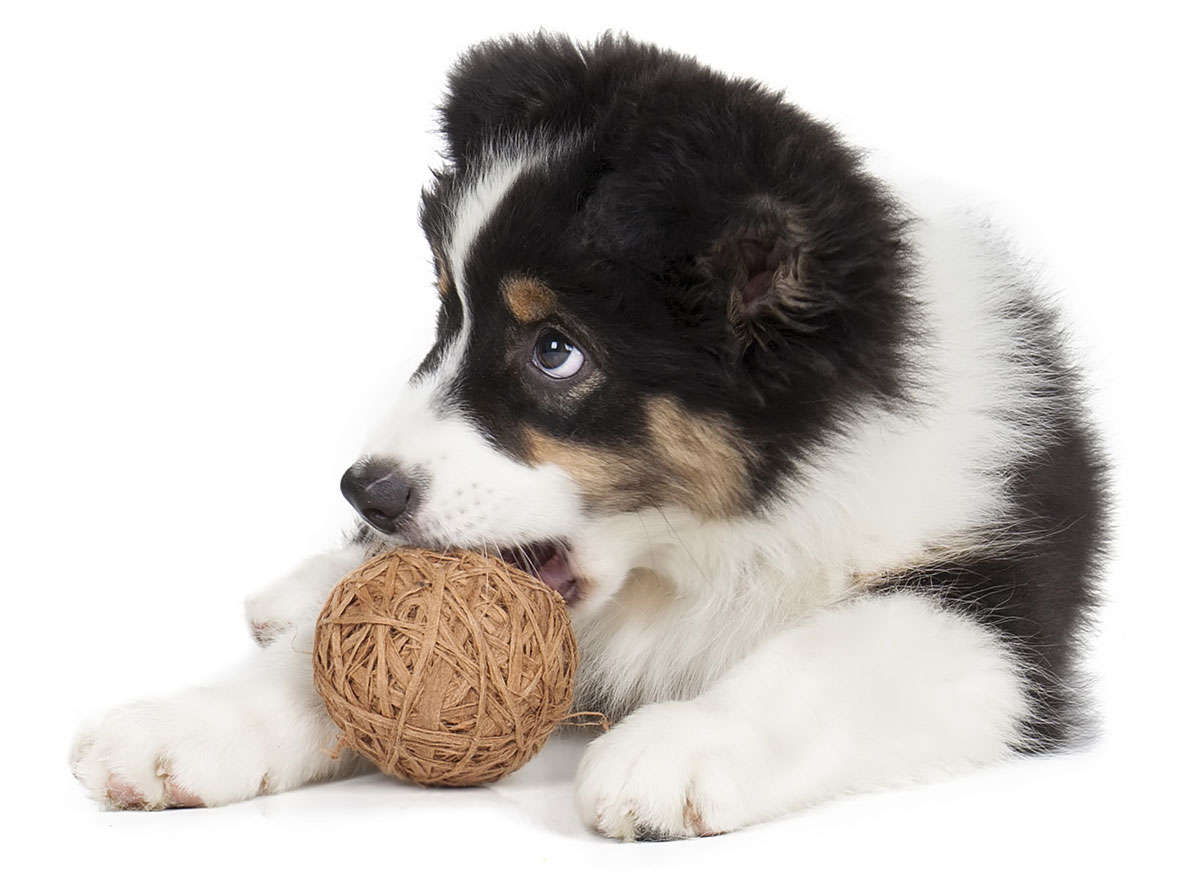
Australian Shepherds are beautiful dogs, but they shed like crazy. Cross them with Poodles, on the other hand, and now we’re talking! Aussiedoodles are energetic, playful, and supremely intelligent.
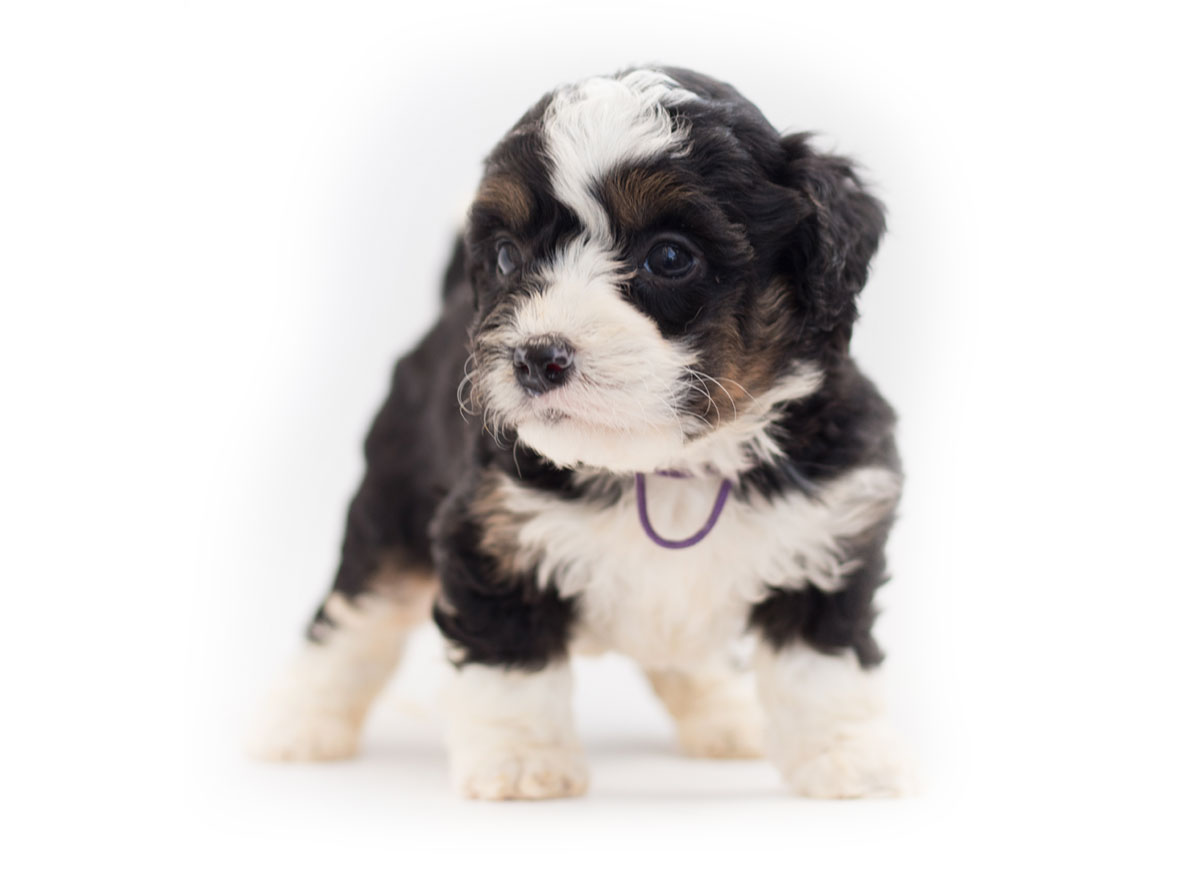
Looking for that large-and-in-charge Bernese Mountain Dog, without a Matterhorn of fur to clean up? If so, try this hybrid Bernese-Poodle instead, and get ready to welcome a gentle giant into your life.
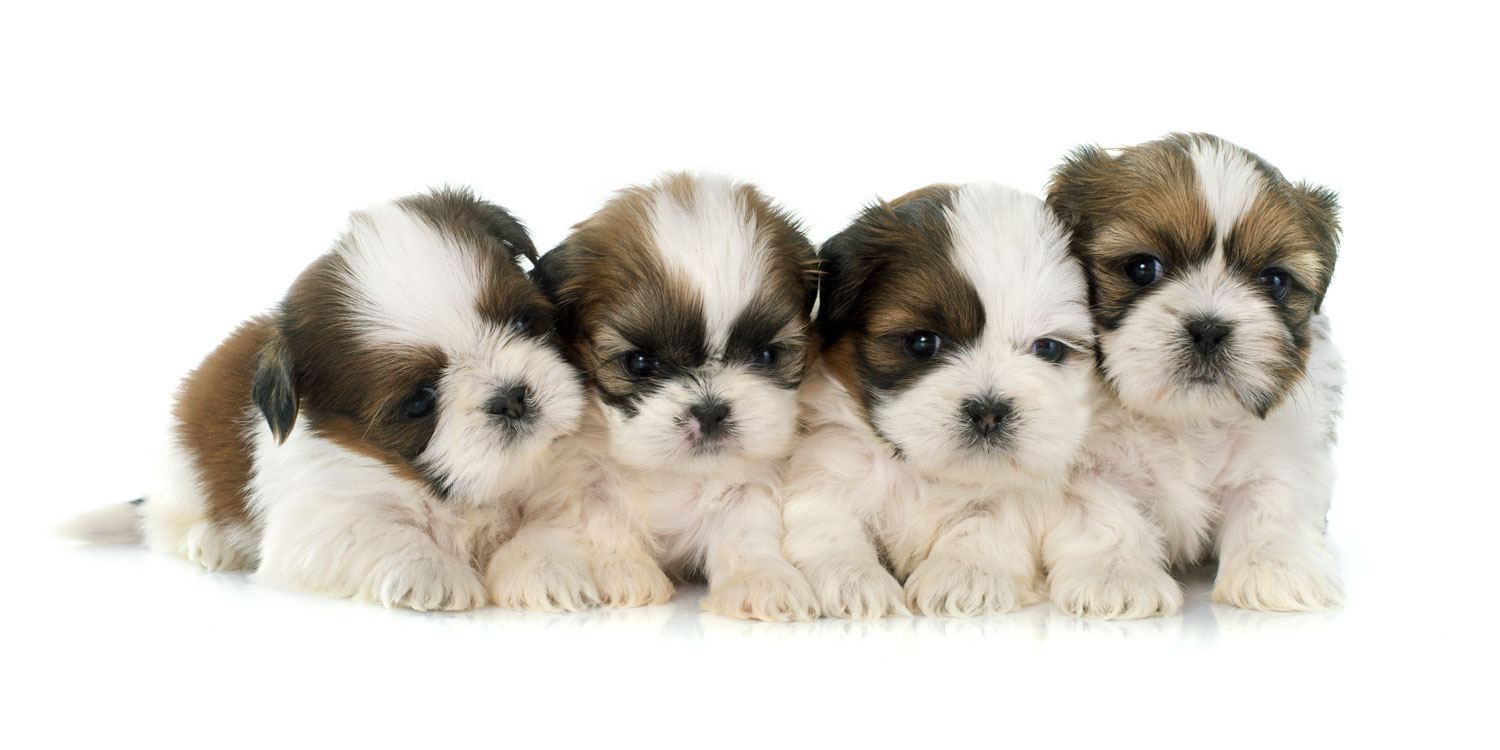
The name “Shih Tzu” hilariously translates as “little lion” from its native Chinese, and there’s nothing scary about these adorable pups. But they certainly are little, and they certainly are low-shedding!
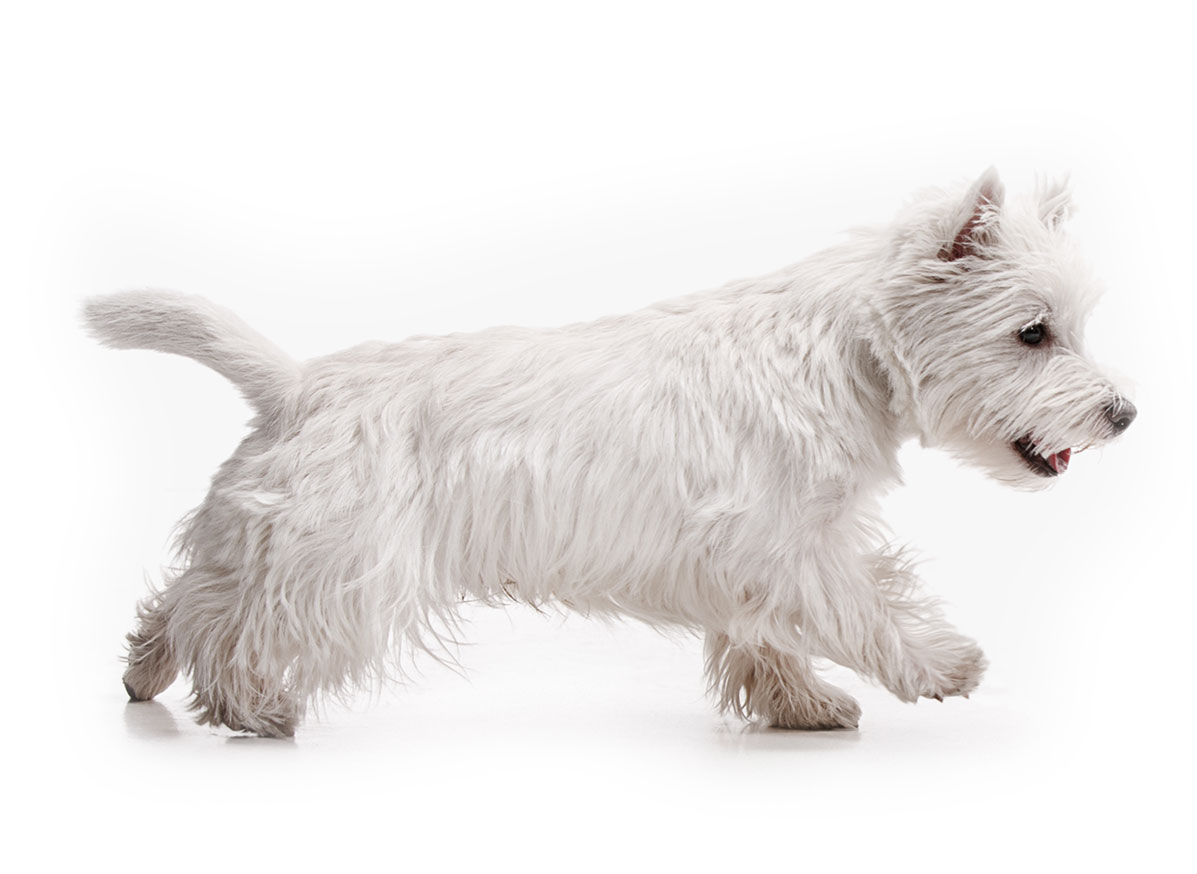
West Highland Terrier puppies for sale
Originally from Scotland, the West Highland White Terrier is affectionately called “Westie” by its many fans. The Westie’s endearing personality and unique coat have many admirers, indeed.
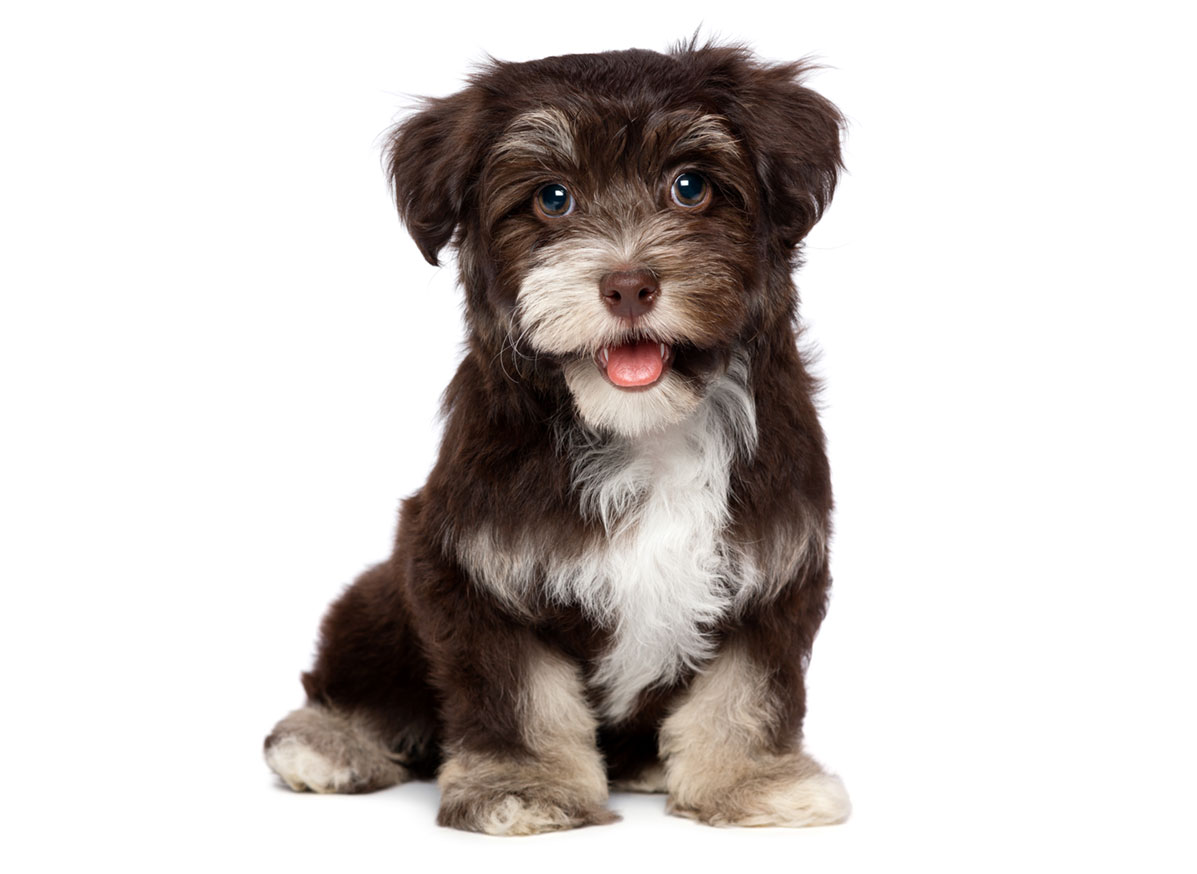
Native to Cuba, these cheerful pups are always eager to please. People love Havanese for their silky (and low shedding) coats, and they’ve been a world favorite for centuries.
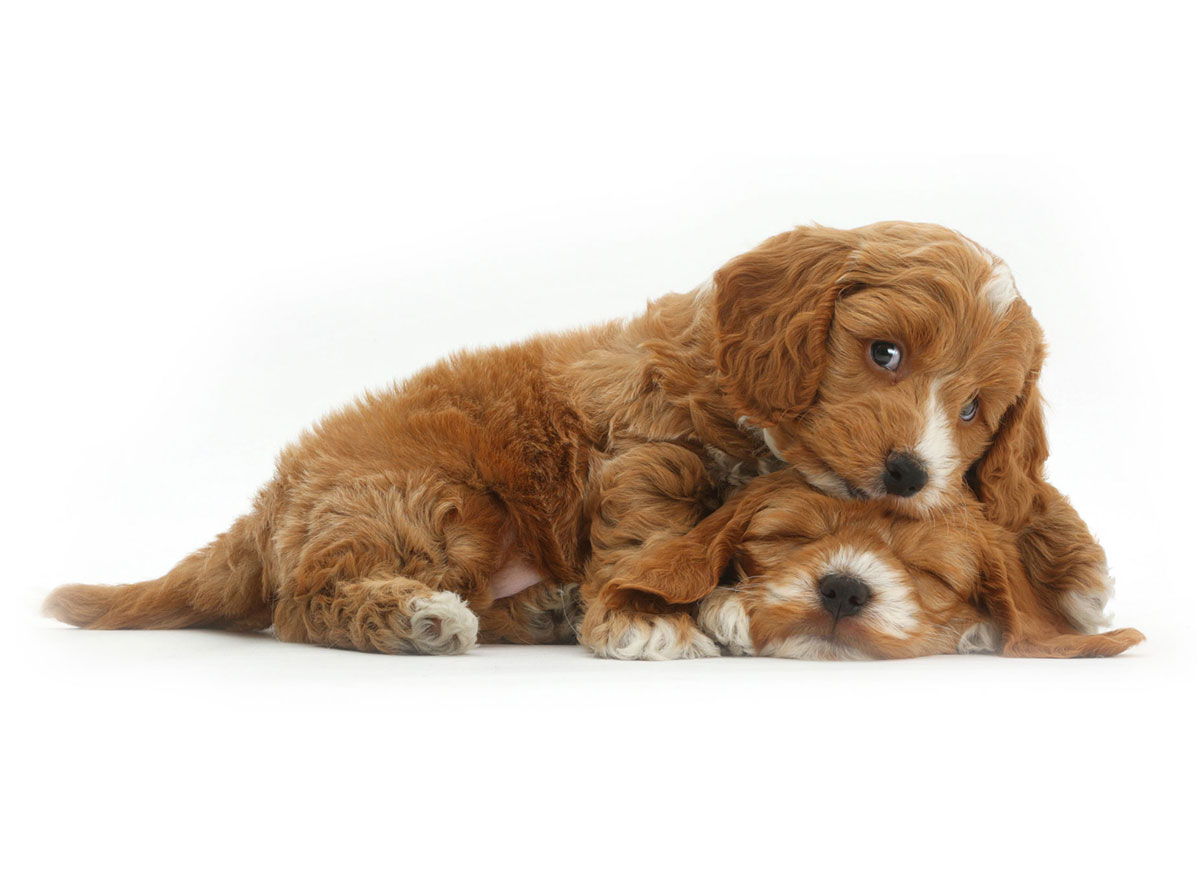
Love Cocker Spaniels but wish they didn’t shed quite so much? You’re not alone — that’s exactly how Cockapoos came to be. As a hybrid between Cocker Spaniels and Poodles, Cockapoos are brilliant, playful, and oh-so-sweet.
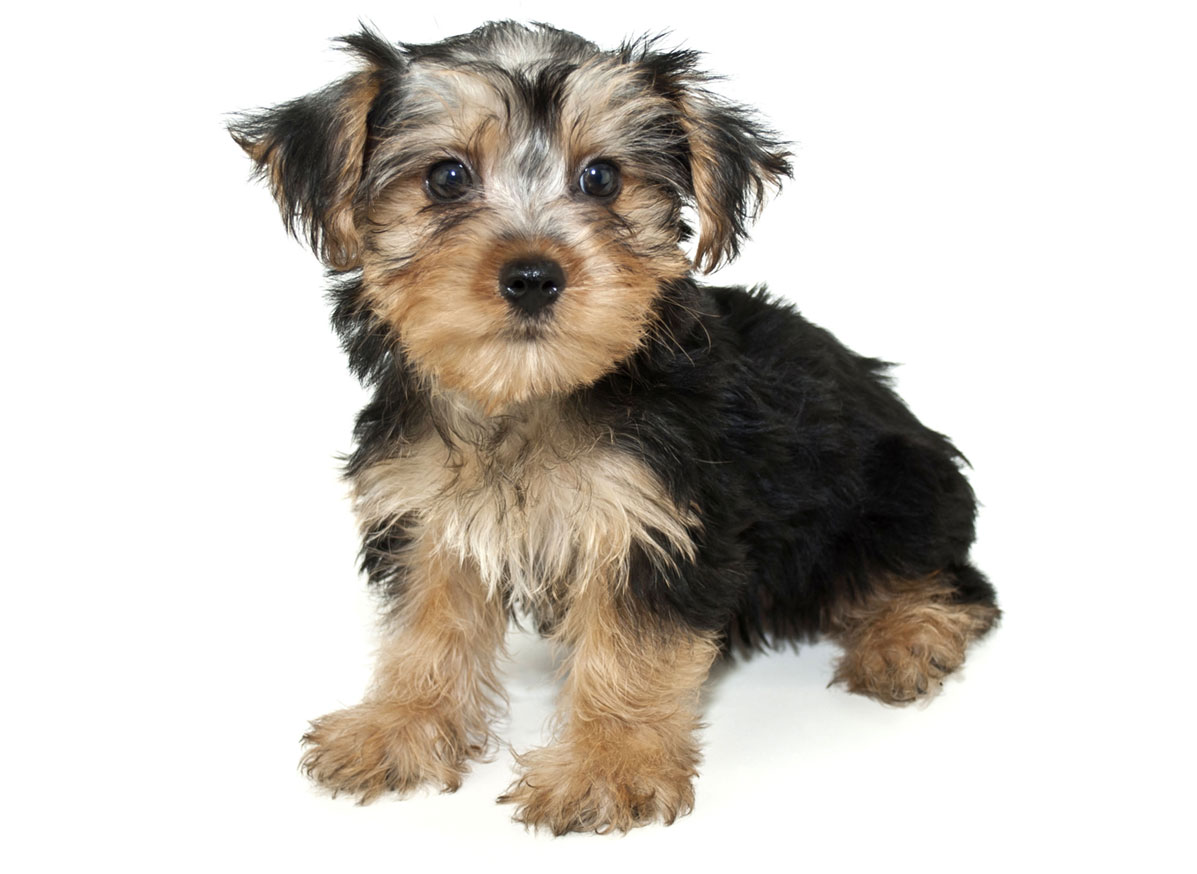
Morkies are yet another hybrid breed, but for once, they don’t have any Poodle in them! Rather, Morkies are a cross between the Maltese and the Yorkshire Terrier. These little teddy bears are friendly and playful, making them perfect apartment dogs.
Questions about non-shedding puppies? We have answers.
Dog allergies are usually caused by proteins found in a dog’s urine, saliva and dander (dead skin flakes which can become airborne). Shedding can be a major factor in allergies because it increases the amount of dander and dead skin flakes that are present.
If you are allergic to dogs, it is best to minimize contact with the dog and its dander as much as possible, including minimizing shedding.
If you suspect that you may be allergic to dogs, the best way to confirm your suspicions is to visit an allergist for skin and/or blood testing. This can help to determine not only if you’re allergic to dogs, but also which type of allergen is causing your symptoms.
Once the allergen has been identified, the allergist can provide advice on how to reduce your exposure and manage your allergies.
One of the best ways is to choose a breed known to shed less. This can help to minimize the amount of dander and dead skin that is present in your home.
Additionally, limiting contact with dogs and regularly cleaning surfaces can help to reduce allergens. It is also important to seek advice from an allergist if you have any concerns about allergies and dogs.
The best dog breeds for people with allergies tend to be the breeds that shed the least. It is important to note that no breed of dog is completely hypoallergenic, so it is still important to take precautions if you have allergies.
Most Doodle breeds are specifically bred to shed less and be more allergy-friendly…but only when coming from a responsible breeder.
Doodles are hybrids, meaning they’re a cross between the non-shedding Poodle and another parent breed — which usually DOES shed.
Through careful breeding, ethical breeders achieve stable, repeatable traits in their Doodle litters (such as maintaining the Poodle’s non-shedding coat). However, irresponsible breeders may offer “hypoallergenic” Doodles that actually express their non-Poodle parent’s coat.
For example, a well-bred Labradoodle should sport a curly or wavy coat similar to a Poodle. Improperly bred Labradoodles, on the other hand, may instead exhibit the Lab’s notoriously shedding hair coat.
Find out how we vet breeders
When picking a minimally shedding dog, choosing the right breeder is extremely important.
Find the Perfect Puppy